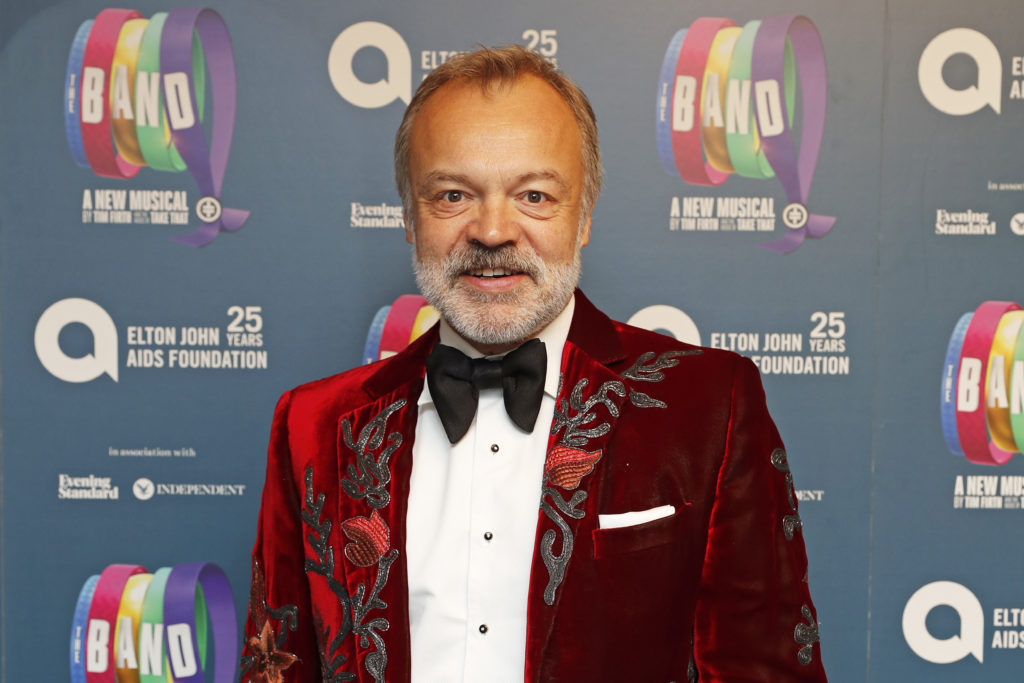Graham Norton on December 4, 2018 in London, England. (David M. Benett/Dave Benett/Getty)
Graham Norton has paid tribute to those who “fought for tolerance in Ireland” while admitting that he “took the easy way out” by moving to London.
The BBC presenter, 57, grew up in Bandon, County Cork in Ireland before moving to London to pursue an acting career.
Born in 1963, Norton grew up in an Ireland that was steeped in Catholicism and where LGBT+ people were not welcomed.
Homosexuality was finally decriminalised in the country in 1993, while same-sex marriage was introduced in 2015. These changes did not happen by themselves – they were the result of decades of activism from queer people who fought tirelessly for change.
In the acknowledgements for his new book Home Stretch, Norton paid tribute to “all the people who stayed in Ireland to fight for the modern tolerant place it has become”, and said he “took the easy way out” by moving to London.
Graham Norton left Ireland and ‘moved where the gays were’.
Speaking to the Irish Independent, Norton said: “I moved where the gays were. I went to London. Where nobody knew me so there was none of that scariness and there were gay bars that were just on the street so I could walk in, and meet other gay people.”
He added: “And I don’t want to be glib about it, because those people who stayed, who went on the marches and did the petitions, are nameless and faceless and I’ll never get to actually thank them, but they did the hard work.
People should be proud of themselves. Ireland is transformed.
“I am aware that Ireland isn’t Nirvana – and I think if young people hear me talking they’ll think ‘what is wrong with him? It’s horrible here…’ Well, try being here in the late 70s!
“People should be proud of themselves. Ireland is transformed.”
Elsewhere in the interview, Norton said that he and his contemporaries, like Irish drag queen Panti Bliss, grew up in a society where being gay was not celebrated.
“You’re not going to go ‘yippee!’ You know it’s not a choice, you know it’s not something you did, but you feel like you’re less than.
“You feel like you failed. You don’t want to test people’s love, because you don’t love you.”
